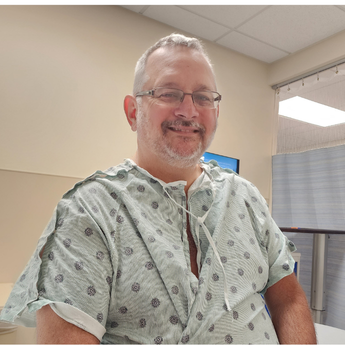In our monthly column, senior writer and editor Adriana Ermter shares her personal experiences with breast cancer.
By Adriana Ermter
I’m writing a different type of article because October is Canadian Breast Cancer Awareness Month. This article isn’t just about me or you. It’s for all of the women who are currently or yet to be diagnosed with breast cancer. So I need to be blunt.
Breast cancer is the most common cancer and the second leading cause of cancer death for Canadian women. Everyday last year, 75 women heard the dreaded and life-changing words that you and I have all been told, “you have breast cancer.” That’s four words for 27,375 women. But don’t take my word for it; you can check the statistics posted on the Canadian Cancer Society’s website at www.cancer.ca.
Still, you and I know better than anyone what this horrible thud of realization feels like. Then, while your mind is still spinning there are the seemingly endless doctor’s appointments, mammograms, ultrasounds, MRIs, biopsies, Oncotype DX testing, surgery, radiation, chemotherapy, possibly more surgery, side effects from treatments and surgery and hormone-blocking drugs to navigate. Worse still, the thoughts about your own mortality, the fight for your life and the head-shaking, heart-wrenching acceptance of death.
But what if all of this could be avoided or at least be minimized with an early diagnosis providing options, the best options? Maybe not for you and I, but for other women.
This is why we have to start talking about and advocating for breast cancer awareness. Donations and fundraising for a cure are selfless acts for sure. I also think using your voice to not just talk about, but shout the importance of breast cancer screening is equally powerful. Advocating is necessary. It is hope. Because every shared word, fact, statistic and insight can support another woman and her breasts and even, save her life.
Here’s how we can talk the talk about breast cancer.
- Share your breast cancer story with your circle of family, friends and co-workers. Tell them as many details as you feel comfortable.
- Tell everyone who will listen that most women diagnosed with breast cancer do not have a family history of breast cancer or any of the risk factors.
- Outline the checklist to be considered high risk:
- Over the age of 50 years
- Have a history of breast cancer in their family
- Have the BRCA1 or BRCA2 genes
- Have had prior radiation treatment - Emphasize that breast cancer screening is every woman’s right.
- Encourage women to insist on having a mammogram on their 40th birthday, regardless of where they live in Canada.
Reason: Mammograms can show breast cancer.
Reason: They show if you have dense breasts, which means you have more breast tissue, making it difficult for a mammogram to detect whether or not you have breast cancer.
Reason: Women with dense breasts need additional screening like ultrasounds and MRIs to properly assess their breast health. - Point out that almost 50 per cent of women who are 40 and older who get mammograms have dense breasts.
- Send women the links to proactive, straightforward and informative websites like:
Canadian Breast Cancer Network
My Breast Screening
Rethink Breast Cancer
Adriana Ermter is a multi award-winning writer and editor. Her work can be read in Figure Skater Fitness and IN Magazine, as well as online at 29Secrets.com, RethinkBreastCancer.ca, Popsugar.com and AmongMen.com. The former Beauty Director for FASHION and Editor-in-Chief for Salon and Childview magazines lives in Toronto with her two very spoiled rescue kittens, Murphy and Olive. You can follow Adriana on Instagram @AdrianaErmter
Photo by Alexander Suhorucov from Pexels







